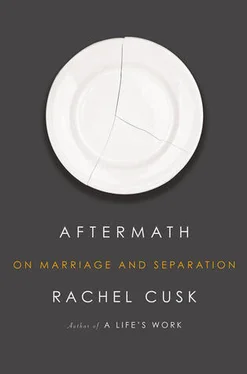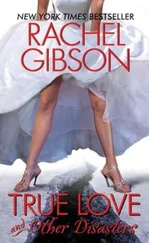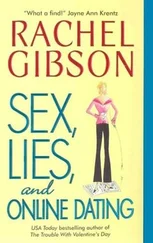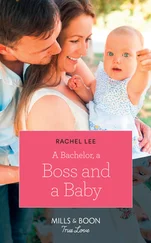Rachel Cusk - Aftermath - On Marriage and Separation
Здесь есть возможность читать онлайн «Rachel Cusk - Aftermath - On Marriage and Separation» весь текст электронной книги совершенно бесплатно (целиком полную версию без сокращений). В некоторых случаях можно слушать аудио, скачать через торрент в формате fb2 и присутствует краткое содержание. Год выпуска: 2012, Издательство: Farrar, Straus and Giroux, Жанр: Публицистика, Биографии и Мемуары, на английском языке. Описание произведения, (предисловие) а так же отзывы посетителей доступны на портале библиотеки ЛибКат.
- Название:Aftermath: On Marriage and Separation
- Автор:
- Издательство:Farrar, Straus and Giroux
- Жанр:
- Год:2012
- ISBN:нет данных
- Рейтинг книги:3 / 5. Голосов: 1
-
Избранное:Добавить в избранное
- Отзывы:
-
Ваша оценка:
- 60
- 1
- 2
- 3
- 4
- 5
Aftermath: On Marriage and Separation: краткое содержание, описание и аннотация
Предлагаем к чтению аннотацию, описание, краткое содержание или предисловие (зависит от того, что написал сам автор книги «Aftermath: On Marriage and Separation»). Если вы не нашли необходимую информацию о книге — напишите в комментариях, мы постараемся отыскать её.
Aftermath: On Marriage and Separation — читать онлайн бесплатно полную книгу (весь текст) целиком
Ниже представлен текст книги, разбитый по страницам. Система сохранения места последней прочитанной страницы, позволяет с удобством читать онлайн бесплатно книгу «Aftermath: On Marriage and Separation», без необходимости каждый раз заново искать на чём Вы остановились. Поставьте закладку, и сможете в любой момент перейти на страницу, на которой закончили чтение.
Интервал:
Закладка:
I need to get back soon for my children, I say.
Oh don’t worry, she says. There’ll be plenty of time for that.
We go in through the gate, through the front garden. The witch jerks open the front door.
Welcome to my humble abode, she says.
She leads me through dark dusty rooms filled with furniture, her crutches thumping across the floorboards; along crooked low-ceilinged corridors, up a creaking staircase with a cobwebbed window at the top. I look out of it, down on to a concrete yard where a big mangy Alsatian is tied by a chain. We pass a cluttered room with a wheelchair in it and a mechanical hospital bed, unmade. There is a man on the landing, holding a little girl in ponytails by the hand. He smiles, says something in a language I don’t recognise. We pass through a low doorway, into a small room with a narrow single bed, whose tiny window looks out on to the dual carriageway. On the floor there are empty wine bottles. The room is cold and smells of rot. There are bits of dirty newspaper tacked to the walls.
Well, nothing will disturb you in here , she says. Enjoy your writing!
And with that she limps out and closes the door.
I sit on the edge of the bed, my hands in my lap. An hour passes, perhaps more. Then I hear the sound of a car pulling up outside. I go to the window and look. A woman comes through the front gate and up the path. She is very fat. She wears tight clothes, a short skirt, a spangled top with a plunging neckline. Her plump neck is roped in jewellery. Her synthetic black hair is piled up on her head. She waddles to the front door and knocks. Below me the door opens. I hear the two women conversing. There is what sounds like an exchange of obscenities, then cackling laughter. Presently I see the two of them going off together down the path. The witch has dressed herself up too: she wears a tight carmine-coloured dress in which her misshapen body takes on a mournful kind of beauty. They get in the other woman’s car, a tiny battered hatchback into which it seems the two of them can’t possibly fit, and they roar away, a plume of black smoke at the exhaust.
Much later, when I am back at home and the children have returned to school, I find a novel in a second-hand bookshop. It has a bright red cover with silver writing on. It is garish, splashy — I turn it over in my hands. The novel is self-published; I vaguely recognise the name on the cover, and standing there read a chapter or two. Their subject is a woman’s loss of value as she ages, the decay of the body that was once the source of her human authority, her feelings of rage at being left alone, men and children having gone away. She shocks people with her desire to live: they expect her to give in, to go quietly, to hide herself away somewhere and politely rot. And so she has come to enjoy their shock, their disapproval. She dresses herself in garish colours. She goes out, out to skirmish with the world, and whether or not she is wounded on that battlefield, whether she is brought down and beaten and meets her end, that end is better than the end society has in mind for her, is a suicidal kind of rebellion, an attempt to go out in a blaze of glory.
I talk to my friends sometimes about my imprisonment in the witch’s house. What did you do? people say. How did you get away? What happened to the children? I don’t tell them — not quite — how difficult I found it to leave, how I stayed there while dusk fell over the hills and the rooms darkened; how I felt that this was something I ought to make right, the ugliness and disorder of this place. I felt I ought to love it, for all at once I understood that its failure came not from some evil intention but from the fact that it was unloved. That failure had frightened me, menaced me, more than the most direct threat to my safety would have; I wanted to protect myself from it, protect my children, but sitting alone in that house, I felt that the true achievement, the true safety, the true authority might lie beyond the instinct to safeguard what was mine.
I called a taxi. I wrote a note saying I was sorry and left it on the table. I called the riding school and explained. Then I waited there, in the dusk, until the taxi’s headlights swept like search-beams across the front windows as it came off the road to find me.
X Y Z
Every week I drive for forty-five minutes along the coast to see Y. I go in the morning, when my children are at school. The journey out of the city is fast at first, then slow once the road passes out into the countryside and narrows to a single lane, where the traffic constantly crawls without stopping or ceasing, a turgid metal river creeping through deserted green banks.
Y lives in a suburban cul-de-sac on the outskirts of a town that I never see, for I reach his house first and have no reason to go any further. I have been instructed not to park in the cul-de-sac itself: I have to leave my car on the road at the bottom and walk up. The black tarmacked surface winds among houses and many trees; except for the noise the wind makes in the foliage it is always silent there, and rarely do I pass another living being on the road, though sometimes I glimpse dim forms through windows set back behind lawns, on whose glass the green canopy of trees makes rippling primordial patterns of shadow and light. At the entrance to Y’s property there is an apple tree. The first time I saw it there was blossom bursting from the branches. The explosive white startled me, frothing out so wildly and yet staying so still, like a white wave frozen in the moment of its breaking. Beyond it are the gates to his driveway. His house has two entrances, one at the front and one at the side, and it is at the side door that on my visits I ring the bell, and stand listening to the wind soughing in the branches, and wait.
At a party in London I meet Z.
A room that is too warm and full of people, with plush fitted carpet underfoot in which we all seem somehow mired. There are waiters circulating with trays of canapés. There is a viscosity in the atmosphere, a thickness in which everything becomes slowed. I watch people’s faces, watch their mouths moving. I seem to hear everything and nothing. Though it is evening the sun comes hot through the city windows. I had to walk around the park across the road for an hour before I could bring myself to go in. I don’t want to talk; I have nothing to say.
Z is a man. What am I to a man, and what is he to me? I haven’t thought about it: I don’t go out very often. I feel like a soldier come back from a war, full of experiences that have silenced me. I cannot return to innocence, the innocence of the first encounter of female and male. It becomes clear that Z is a veteran too; he too is full of the swarming silence of experience. But we have fought in different wars.
I don’t know him. We talk about cities, about Bangkok and Los Angeles and Moscow. We are strangers and this conversation is a kind of rocket, fast-moving and airborne, keeping us up above the surface of things. It is as though we are orbiting the earth from a great distance and observing its landmarks, its populous centres. There is a freedom to it that at any moment could become terror. Every few minutes a waiter comes past and stops with a tray. After a while I become familiar with these rotating offerings, can begin to anticipate their sequence and character. I begin to know the tray of celery sticks standing in a glossy mound of mayonnaise, the tray of little pastry cups with something yellow and sticky inside, the tray of shiny brown cocktail sausages: when they come round I notice that the mayonnaise has formed a kind of crust, that the pastry cups have become so steeped in rejection that it is impossible to do anything but reject them again. I begin to anchor myself in this familiarity as a weed anchors itself in the merest thimbleful of soil, but then, when the waiter appears at the expected moment with his tray of cocktail sausages, Z waves him irritably away. He has had enough of these interruptions. A feeling of anxiety grips me. The waiter retreats. I feel, somehow, bereft. I feel that nothing might ever come my way again, that I am destitute, like a child lost in a hectic foreign city, in Los Angeles, in downtown Bangkok. As the waiter passes me I put out my hand and snatch a sausage from the tray and I put it in my mouth.
Читать дальшеИнтервал:
Закладка:
Похожие книги на «Aftermath: On Marriage and Separation»
Представляем Вашему вниманию похожие книги на «Aftermath: On Marriage and Separation» списком для выбора. Мы отобрали схожую по названию и смыслу литературу в надежде предоставить читателям больше вариантов отыскать новые, интересные, ещё непрочитанные произведения.
Обсуждение, отзывы о книге «Aftermath: On Marriage and Separation» и просто собственные мнения читателей. Оставьте ваши комментарии, напишите, что Вы думаете о произведении, его смысле или главных героях. Укажите что конкретно понравилось, а что нет, и почему Вы так считаете.












